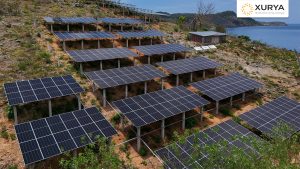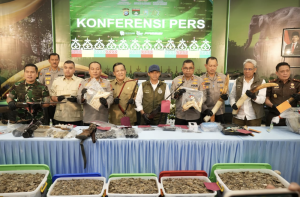Jakarta – To ensure a reliable supply of natural gas to support industrial growth and household needs in Sumatra and Java, the government emphasised that the Rp6.6 trillion funding for the Dumai-Sei Mangkei gas pipeline project will continue as planned without any changes to the scheme, despite austerity policies in other sectors. The budget is categorised as infrastructure capital expenditure, which is not included in the ministry’s operational budget austerity policy.
Deputy Minister of Energy and Mineral Resources (MEMR) Yuliot Tanjung said that the Dumai-Sei Mangkei gas pipeline project is integral to national strategic infrastructure. Yuliot explained that this pipeline network is designed to channel natural gas from the production areas in the Agung and Andaman working areas (WK), Aceh, to consumers in Java and Sumatra, thus increasing the availability of gas in areas that are highly dependent on energy supply.
“The construction of this network not only ensures a more stable gas supply but also supports the competitiveness of national industry by providing a more efficient and environmentally friendly energy source,” Yuiot said in an official statement on Monday, February 10.
Furthermore, Yuliot said project funding will be utilised from various sources, including Non-Tax State Revenue (PNBP) and other infrastructure financing schemes that have been prepared.
“These funds have been allocated separately, and the financing mechanism has been prepared through the infrastructure budget post. We make sure no shift in the scheme can disrupt the smooth running of the project,” he said.
The Dumai-Sei Mangkei gas pipeline project is one of the flagship projects in the National Strategic Project (PSN) framework mandated in Presidential Regulation Number 109 of 2020. If the project is completed, the gas pipeline network in Indonesia will be connected from Aceh to East Java, opening up opportunities for broader energy distribution and supporting national economic growth.
The development of this infrastructure is seen as an essential step totoward reducingnergy costs for the industrial and household sectors, especially in areas thwithimited gas supply. With guaranteed funding and scheme consistency, the government expects this project to be realised without a hitch, supporting the vision of a sustainable national energy transition.
“We are committed to ensuring that infrastructure investments such as this gas pipeline are key to supporting Indonesia’s energy independence. This project must proceed as planned and not be affected by the austerity policy that applies to operational spending,” Yuliot concluded. (Hartatik)















